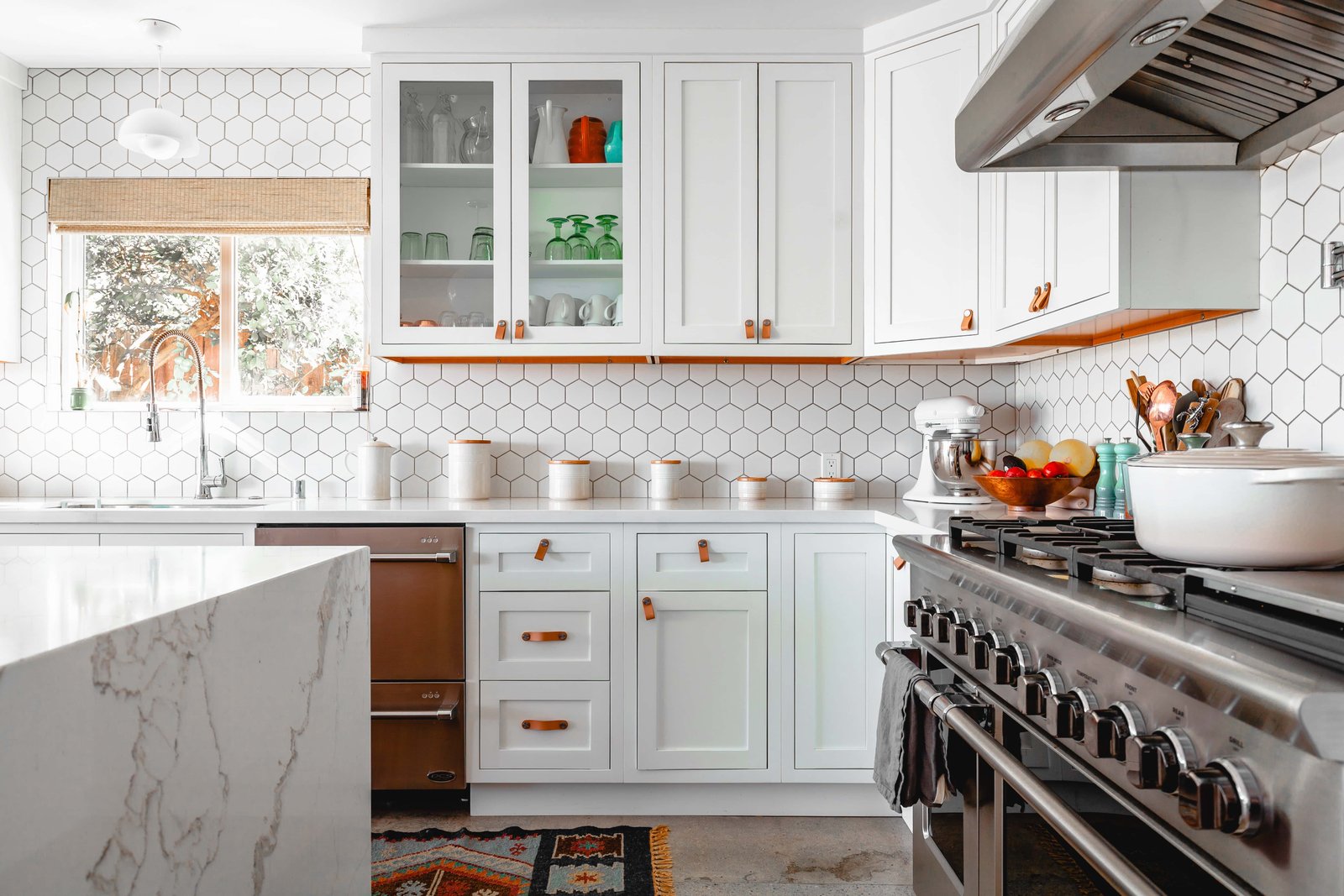Thinking About A Kitchen Extension?


A kitchen extension is a great way to make a small pokey cooking space into a large open plan space that everyone can enjoy. Modern kitchens are not only places for cooking – they have become spaces for living, dining, socialising, playing and even doing homework. Building a multifunctional space that serves all these functions, is not an easy feat. That does not mean that it is an impossibility. Here are some key factors you need to keep in mind while embarking on a kitchen renovation project.
What can I expect to pay for a kitchen extension?
Without having a plan in place and without having a clear design idea, it is difficult to tell you exactly what you will spend on a kitchen extension project. However, if you want a rough estimate based on averages, you can expect to pay around £2,500 for every square meter of space added. Do keep in mind that this is just a rough estimate, and this may vary greatly depending on the final plan, the finishes you choose and any especial feature you may want to add. When estimating your cost, keep in mind that you will need to factor in the cost of the superstructure, cabinets and work surfaces, flooring, electrics, heating and plumbing, windows, doors and glazing, decorating and finishing, party wall agreements (if necessary), architects’ fees, building regulations and planning fees (if necessary), insurance, and so on. Also, always make sure that you plan for a healthy contingency fund. As with most renovation projects, there is always a chance that additional costs will arise as the project progresses – we recommend around 20% of the estimated cost to be on the safe side of things.
How Much Value Can I Expect a Kitchen Extension Will Add To My Property?
If your kitchen is small, a kitchen extension is one of the best investments you can make. It will increase your living space either by adding it directly or by freeing other spaces in the house – for example adding a dining space to your kitchen extension may free up another room currently used for this purpose. Just keep in mind that to make your kitchen extension a project that will provide you a realistic ROI, you need to consider what is the top value of houses with similar extensions in your area versus how much you would have to spend to achieve this project to your desired standards.
Will I Need Planning Permission?
That all depends. You might be covered under Permitted Development (PD) Rights, in which case you will not require planning consent. However if your home is in a Conservation Area, a national park or is a listed property, you will most probably need consent.
If you project is to fall under PD, it should be single-story, a maximum height of four metres, it should not extend beyond the original rear wall of the house by more than six metres if it is an attached house or eight metres for a detached home. If you are adding a side extension, this must be single-storey with a width of no more than half that of the original house. It is always a good idea though to check with your local authority just in case.
If you are building an extension, building work involving work to boundary walls between your house and your neighbours needs to comply with the Party Wall Act and, as part of the process, you’ll need to serve a Party Wall Notice to adjoining neighbours. This is notice of the work you intend to do and should be served at least two months before work begins.
If they consent within 14 days to the work, then you can begin. If they don’t, you and your neighbour will need to appoint a party wall surveyor (this may or may not be the same company) to draft up a party wall ‘award’, which describes how work will proceed.
You will still need Building regulations approval to ensure that the minimum design and construction standards are met. These are likely to refer to energy performance, structural integrity, protection against walls and unsafe walls, electric and gas safety and fire protection.
What Is The Best Design For My Extension?
Budget will heavily dictate design. Remember that bigger is not always better. Make sure you take into consideration what you plan to use the space for, how it integrates with the rest of the house and your outdoor space and the amount of natural light that your design will allow into the property.
Do I Need To Hire An Architect?
Not necessarily. If your budget allows, then hiring a professional is always a great choice. They will be experienced enough to make sure that your vision becomes a reality. However, if your project is not too complicated you might be able to hand it over to a good design-and-build company and still achieve great results. Whatever your plans are, we at Dominant Construction are always keen to have a chat to explore how we can help you make your project a reality. Give us a call on 020 71186155 or make an appointment to come and talk to us at our office in Hammersmith.